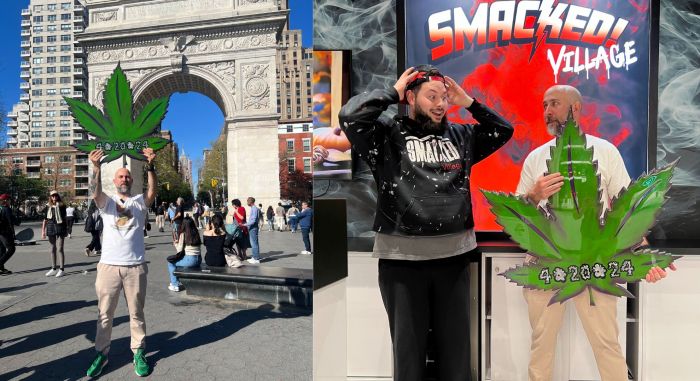By Brendan Browne
Even though the attack on the World Trade Center occurred more than nine months ago, the anxieties, depression, and stress related to terrorism are very much alive, said mental health professionals at a St. John’s University conference.
“United States citizens felt very insulated for a long time and now we’re not,” said Dr. Anthony Ng, director of Disaster Psychiatry Outreach, a non-profit health organization for disaster victims based in Manhattan
“There is an institution of nervousness. We are always on the edge like Israel,” said Ng, the keynote speaker at the conference titled “Living in Fear: Terrorism and the Effects on Mental Health.”
Not only have people, and especially New Yorkers, suffered from the Sept. 11 events but also from the constant threat of another attack, a bombing or hijacking.
The New York Times reported Monday that in a poll it conducted with CBS News it found 70 percent of respondents said an attack on the United States in the next few months was somewhat or very likely. Sixty percent said they thought there is a greater chance an attack on the United States will come in New York City than in other cities, the newspaper reported.
Psychiatrists and mental health professionals across the city have had to tackle this relatively new situation and the illnesses and problems it creates.
“This is a topic nobody wants to hear, but it is necessary to hear. We have to deal with it,” said Ng, as he referred to several types of mental illnesses affecting New Yorkers.
Doctors at the conference listed problems as severe as post traumatic stress disorder and anxiety attacks to more minor disturbances such as nightmares and irritability. Many people are not even aware that they may be suffering from Sept. 11 and terrorism related anxieties, doctors said.
These problems may be suppressed for a period before they start affecting a person’s life. “People don’t react to something for months sometimes and all of a sudden it hits them … the more you talk to people the more you see they’re having trouble,” said Mark Bernstein, deputy director of Transitional Services for New York, a non-profit mental health organization that sponsored the conference.
Groups like Transitional Services are providing help through the Project Liberty project, a free counseling service for those affected by Sept. 11. The program, which is sponsored by the Federal Emergency and Management Agency and the Center for Mental Health Services, was created after the attacks.
Some who come for counseling experience trauma from being at the World Trade Center on Sept. 11 or losing a family member there. Others struggle to cope with the constant threat of terrorism and a city drastically changed in just one day, they added.
George Nicholson, a Woodside resident, said he has been coping with bipolarism for years and terrorism has made his case more difficult. Nicholson was working in the World Financial Center across the street from the Twin Towers in 1993 during the first terrorist attacks.
Losing a friend who was working as a firefighter on Sept. 11 did not help his condition either. “I just can’t put my feelings away on that shelf. I was hurt deeply that day,” said Nicholson, who now fears that terrorists will bring a bomb into the city.
Still, mental health experts recognize an opportunity to remove a stigmatization they say most people have about mental illnesses. Many people, including police, firefighters and rescue workers who rarely sought counseling outside their organizations before Sept. 11, now have looked to Project Liberty. The city clearly is still recovering, doctors said.
“The stigma of mental illness often prevents trauma and disaster victims from seeking care,” said Ng. “We’re at a crossroads where we can do a lot for mental health and drop the stigma.”
“It is unprecedented in this disaster that the firefighters and police come for help,” added Marilyn Vallejo, a Red Cross volunteer who has worked at Ground Zero. “There have been so many different responses” to the attacks.
Reach reporter Brendan Browne by e-mail at TimesLedger@aol.com or by phone at 229-0300, Ext. 155.































